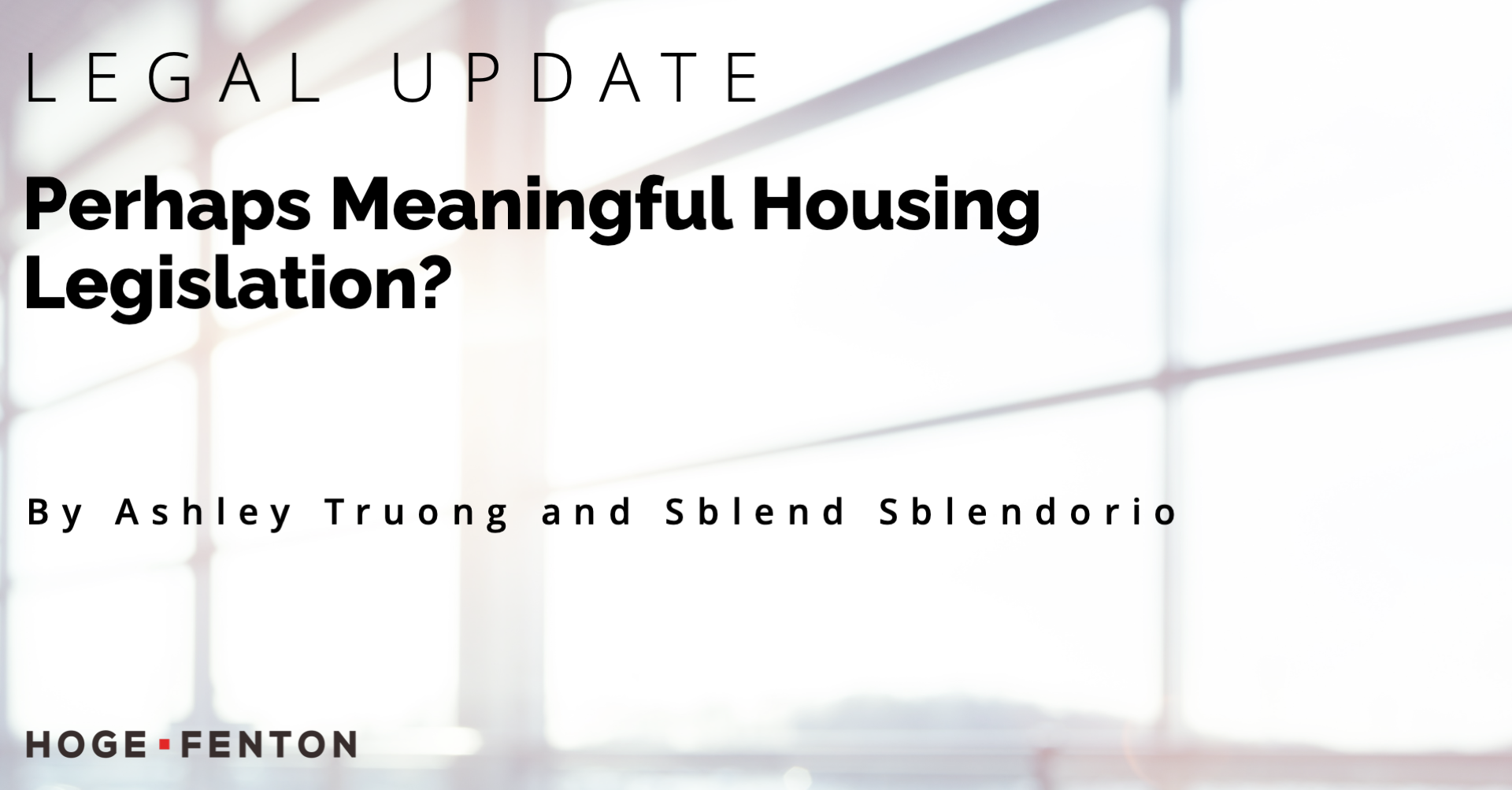Perhaps Meaningful Housing Legislation
By Sblend A. Sblendorio | 06.19.2025 | Firm Post

Perhaps Meaningful Housing Legislation?
By Ashley Truong and Sblend Sblendorio. Ashley Truong is a Summer Clerk with Hoge Fenton. She is pursuing her law degree and is a J.D. Candidate at U.C. Davis School of Law. Ashley earned her undergraduate degree in Neurobiology, Physiology, and Behavior at U.C. Davis.
Environmental review under the California Environmental Quality Act (“CEQA”) often takes years to complete. However, CEQA housing exemptions have existed for decades, allowing a few housing projects to proceed with limited environmental review. Governor Newsom has backed a housing bill that would reduce review time for a wider range of projects, especially infill housing.
Assembly Bill 609, authored by Oakland Assemblymember Buffy Wicks, includes a CEQA exemption for infill developments. The bill applies to housing projects with:
- Sites that are less than 20 acres;
- Sites on or adjoining areas of current or former urban use; and
- Sites located within the boundaries of an incorporated city or town of any size, or within an “urban area” (defined as an unincorporated area with at least 5,000 residents or 2,000 housing units).
Current exemptions are used for small housing projects and infill sites up to five acres, but the 20-acre limit under this bill would include larger projects, including substantial single-family, market-rate developments.
Additional requirements under the bill include:
- The site must not contain tribal cultural resources;
- The project must meet at least one-half of the applicable “Mullin” density;
- The project must be consistent with the applicable general plan and zoning ordinance; and
- The project must not require demolition of a historic structure.
The local government must also ensure that the developer conducts a Phase I environmental assessment. If a “recognized environmental condition” is discovered, a more detailed review—a Preliminary Endangerment Assessment (“PEA”)—must be completed. While PEAs are mentioned in various housing bills, this bill includes a different cleanup standard, requiring that hazardous substance releases be mitigated to meet federal and state statutory and regulatory standards.
Most notably, the bill does not require the developer to pay prevailing wages.
Advocates argue that AB 609 would facilitate increased redevelopment and the creation of affordable and environmentally friendly housing. The bill streamlines projects that already comply with objective design standards, general plans, and zoning ordinances that have previously undergone CEQA review. Critics argue that AB 609 lacks necessary affordability protections and would allow major projects to proceed without adequate public safeguards and environmental scrutiny.
The bill has passed the Assembly and is awaiting Senate action.










